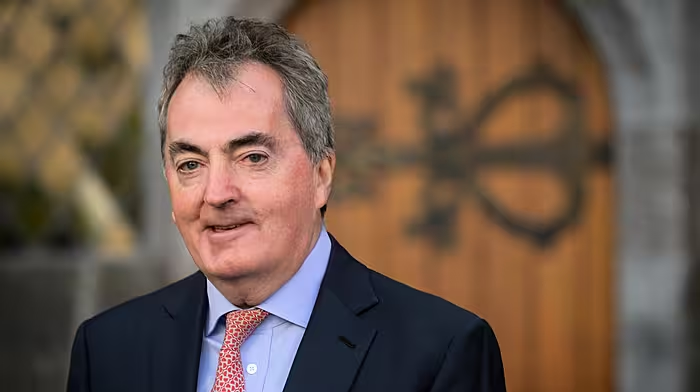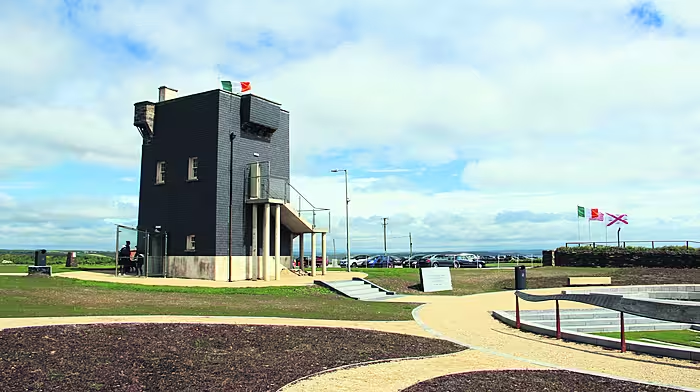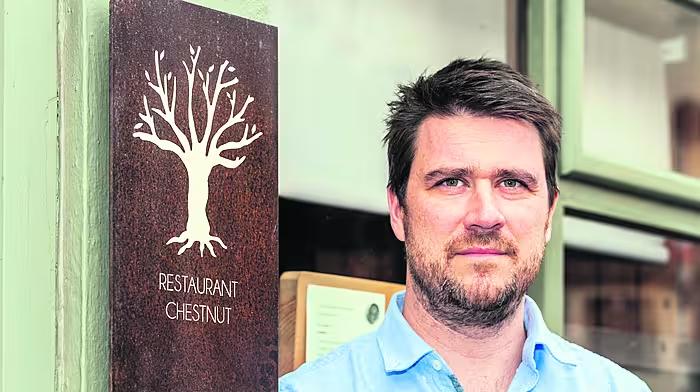A festival of Irish music had millions in fits as they danced wildly in the TV studio, in kitchens, cafés and on the streets
AS with people worldwide, on New Year’s Eve Russians celebrated the arrival of 2016 by turning on the telly and raising their glasses for the twelve strokes struck by the Kremlin clock.
Nothing unusual about that, except for the fact that after Mr Putin made the toasts on national television the first thing to hit the ears of the masses was the Wolfe Tones’ anthem ‘Some Say the Devil is Dead’!
And if Taoiseach Indakinny, already supporting an unfair boycott of Russian produce, smirked as the largest country in the world enjoyed a festival of Irish music, he should think again. Or at least familiarise himself with the words of the Wolfe Tones ballad.
Lyrics like these, for instance: ‘Betty, she is tall and thin, tall and thin, tall and thin.
Betty, she is tall and thin. She likes a drop of brandy.
Drinks it in the bed at night, drinks it in the bed at night, drinks it in the bed at night.
It makes her nice and randy.’
Or, perhaps, he might care to reflect on this example of exquisite Gaelic warbling, the sort that charmed saints and sinners, Blueshirts and blackguards:
‘My wife, she has a hairy thing, a hairy thing, a hairy thing.
My wife, she has a hairy thing, she showed it to me on Sunday.
She bought it in the furrier shop, bought it in the furrier shop, bought it in the furrier shop. It’s going back on Monday.’
The ditty had millions of Russians in fits as they danced wildly in the TV studio, in kitchens throughout the Motherland, in cafés and streets. They had never heard anything like it.
Performed by Grigory Leps, the balladeer embellished his rendition with some of the best Irish dancers available in the land of the former Soviet Socialist Republics.
How do we know all this? Our man in Saint Petersburg and avid reader of The Southern Star, Dmitri Evmenov, told us so. What’s more, he kindly uploaded the Channel One video to YouTube for Star readers to marvel at. It’s at
Mr Evmenov points out that Boris Grebenshchikov, an acclaimed singer-songwriter and Irish trad expert, translated the lyrics into Russian (Brian Finnegan, a tin whistle player from Antrim, is a permanent fixture in Grebenshchikov’s band, Akvarium). Here’s a YouTube link: http://www.youtube.com/watch?v=OCCke5NZMf8
Enjoy!
Lessons of 1916
And they’re off! Political parties, RTÉ and eccentric commentators in the Indo-Sindo are competing like crocked racehorses to win hearts and minds with the correct interpretation of what the 1916 Rising was all about. The Sindo sees the Rising as the event that introduced a ‘terribly toxic thread of physical violence into Irish life’ while republicans assert that history is being rewritten in the interests of narrow party political objectives; or, as Sinn Féin bluntly says, to deliberately misrepresent the facts.
As if history was repeating itself as farce, the Sindo described Gerry Adams as ‘painting a picture of his morally decrepit criminal gang of fools’ – a comment that as a flight of literary fancy took us back to the days of William Martin Murphy who used the columns of the same newspaper to call for the execution of several 1916 leaders.
It’s not that the Dublin media is alone in suffering queasy feelings about commemorating the ‘men of violence’. Indeed, in West Cork we saw something similar take place in response to the proposed revamping of the Kilmichael ambush site when much acrimonious discussion was devoted the topic of ‘commemorating’ the British soldiers killed in the battle.
After considerable public controversy, common sense prevailed and the cynical move to strip the Kilmichael Ambush of its context and politics eventually failed.
Subversive document?
Kilmichael and the Dublin meeja aside, already getting rightly up the nose of some FG politicos is the prospect of an excess or overindulgence in nationalist sentiment; as is the case of Dún Laoghaire-Rathdown county councillor, John Bailey.
As Fine Gael group leader on the council, he described as ‘inappropriate’ a motion calling for a copy of the 1916 Proclamation to be displayed in the council chamber. While admitting the Proclamation was ‘part of our heritage,’ it thought it wrong to exhibit the document in the chamber.
The council should hang the thing elsewhere, he said. He didn’t specify the location and, amazingly, the council agreed!
Auld decency!
Curiously, a hankering after the relics of auld dacency, in other words the British Raj, is not unknown in Cork. Way back in 1945, patriotically-minded citizens began a campaign to change the names of some of the city’s main streets in preparation for the 30th anniversary of the Rising.
But, because of opposition from the business ‘community,’ they got nowhere.
According to historian Jim Lane, a group led by Lord Mayor Seán Cronin marched through the main streets of Cork with the intention of replacing the Marlboroughs, the Georges, the Alberts and the Victorias with the names of the 1916 heroes.
Equipped with plaques bearing the new street names, the Grand Parade became Connolly Street; the South Mall was transformed into Pearse Street and so on to other streets where changes also were made. Whatever about the Second World War and Europe in flames, Cork at least had its heart in the right place!
Sadly the new street-monikers lasted just a day and a half.
City Manager Phil Monahan ordered the signs to be taken down after shops and businesses complained of the cost they would have to carry in purchasing new stationery and altering addresses on lorries and vans. Five weeks later, a plebiscite showed a majority in favour of keeping the Ascendancy place names.
As it was
At least the Orange Order pulls no punches, particularly in the South, where it’s safe to do so. Last November a Dublin lodge held a ceremony on Mount Street Bridge (the first public event held by the Orange Order in Dublin since 1936) in honour of the British soldiers ‘who paid the ultimate supreme sacrifice in putting down the 1916 rebellion’.
In a social media post, the outfit wrote that the 1916 ‘rebellion’ was aimed at ‘replacing constitutional government with tyrannical government and civic peace and harmony with rape and murder of life and property.’ No mincing of words with that lot!
In an earlier statement, the Dublin lodge called on Taoiseach Kenny and the ‘Republic’s ministers’ to set an example to the nation’s children by distancing themselves from the violence used in 1916.
The lodge added: ‘our children need to know that a grievance, no matter how deeply felt by a minority, should be dealt with peacefully and by argument, as Fine Gael’s John Bruton recently suggested.’
Ah yes, John Brutal, Fine Gael and the patriot games – but that’s for another day!








